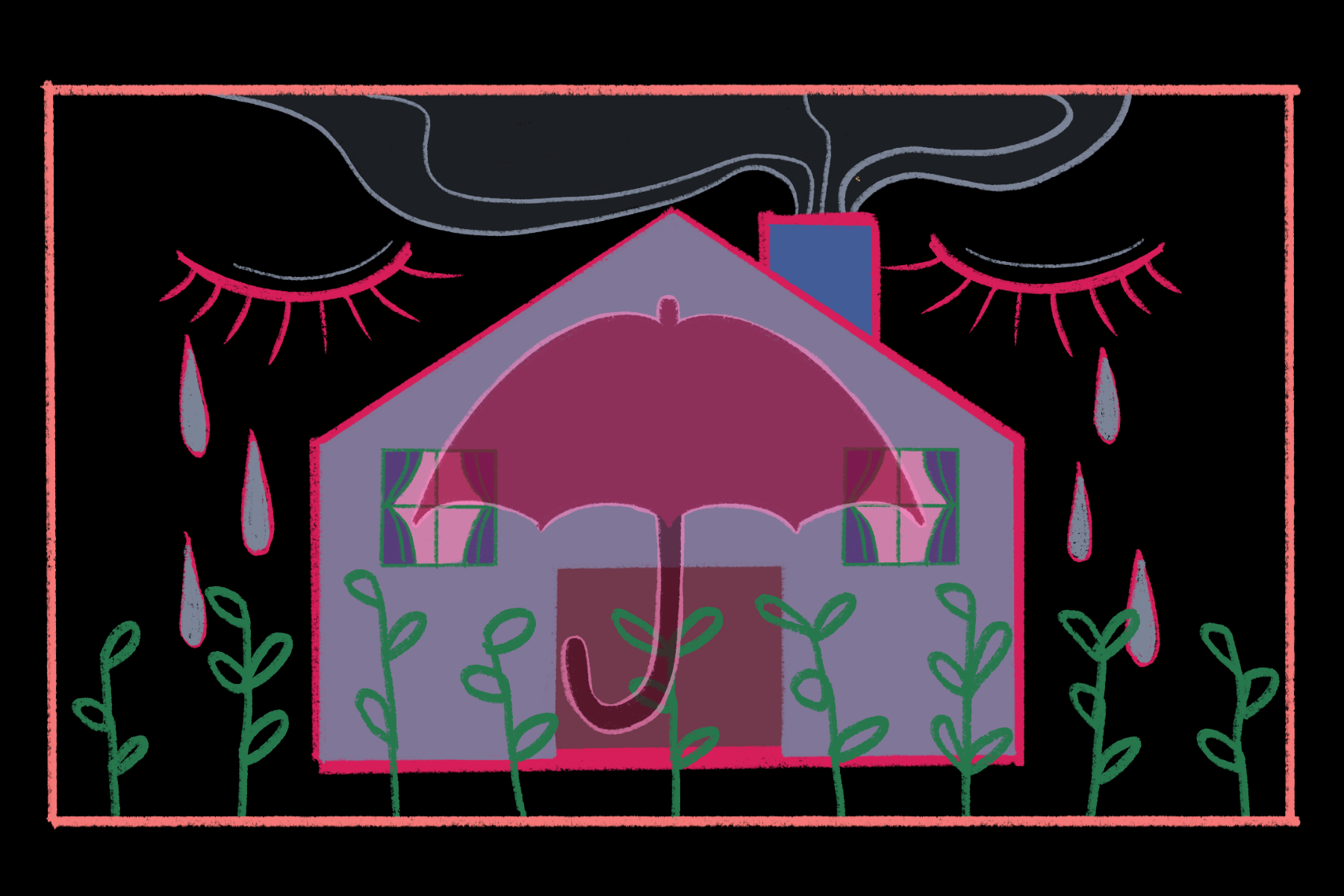Please note: To protect the identities of interviewees, some names have been changed.
Finding a rental property can be a real nightmare. Queuing for inspections, endless application forms, saving up a bond… it’s time-consuming, stressful, and expensive. How much more difficult does that process become if you’re a sex worker?
Whether we live in a place where sex work is outlawed or work under a semi-decriminalised or regulated system, stigma is an ever-present problem. Our bank managers, doctors, real estate agents and emergency workers might have any number of hang-ups about sex work – and their attitude often determines whether we get the help we need.
In December of 2020, I spoke with two sex workers about their experiences of looking for a place to call home…and discovered that a lot needs to change.
Remember ‘Maslow’s hierarchy of needs’, that little pyramid that describes the essentials of life? According to Maslow, shelter is one of our most basic needs, a bare minimum for our survival. Everyone should have a home – or, at the very least, a roof over their head.
But it doesn’t always work out that way. In Australia, it’s estimated that 110,000 people find themselves homeless each night. The reasons vary, but housing affordability is an issue about 54% of the time, according to Homelessness Australia. The situation is even worse globally. In the USA, for example, about 552,000 people are considered homeless. Even without the economic issues of the pandemic, some economists say that access to affordable housing is a growing problem for many major cities worldwide.
With so much competition for property, it’s easy to imagine that sex workers might get a bad deal. Agents and landlords use their judgement to choose the best tenant, and there’s plenty of room for discrimination. But it’s not something I’ve experienced personally. As a sex worker, I’m very privileged – although neither straight nor completely white, I pass for a boring, Caucasian, middle-class citizen. And although I’m open about my profession, I’ve been lucky enough to not have to look for property while working; I’ve sub-let from friends or lived with partners. I’ve never been in the situation of having to wrangle a rental application while also doing sex work full-time.
So, rather than relying on my own experiences for this blog, I reached out to a couple of workers with stories to share.
First, I spoke with Lucy, a worker living in a large town in East-coast Australia. She runs a successful business as an escort and online content producer…but discovered that when it came to rental properties, money simply wasn’t enough.
When Lucy began working in the sex industry, she had the support of her business-minded family and still lived at home. Unfortunately, her parents became ill and she needed to find a place of her own. From the very first rental inspection, she was totally honest about her work. “Being naive, I didn't think it was a problem, because I've got a good business plan and income,” she says. “I thought I'd apply for one or two, and probably get the first or second one, because I'm an ideal tenant.”
After months of applying for properties, she still hadn’t secured a lease. “I just wasn't hearing back...people said, 'Oh, we went with someone else'.”
Eventually she contacted a friend who worked in real estate to ask for advice. “I said, 'Look, I'm not hearing back from any of these [applications], it's been like three, four months, what's going on?' And she goes, 'I don't know if you know, but one real estate agency has emailed all the [others] your private details and your work details…and they've blacklisted you.'”
It’s shocking, but not surprising. The idea of sex work is so overwhelming for some folks that it totally obscures our humanity. For them, everything becomes a moral panic about our work. Property agents might assume we’ll be using any premises we rent to work from – and there’s a misconception that sex workers attract drugs and crime. They forget that we need a place to live, same as anyone else.
Sex workers in Australia don’t have specific protections against discrimination based on our profession. Our national peak body Scarlet Alliance says that many workers experience problems when it comes to housing and accommodation, with anti-discrimination laws that are ‘inconsistent and ineffective.’ In 2019, SWOP NSW made a submission to the Australian Human Rights Commission calling for ‘overhaul of Australia’s federal anti-discrimination laws to ensure consistent coverage of other important areas of discrimination, including discrimination due to occupation’ but this has yet to be enacted in law.
Faced with this staggering breach of privacy – and the fact that no agents would accept her applications – Lucy was forced to buy an apartment instead of renting. Without this option, she says, she would have been homeless. Lucy readily admits that many sex workers wouldn’t have the funds to buy property. Her experience makes her wonder how her peers might fare in a similar situation. “I'm actually quite grateful of the position that I'm in…it makes me look on other [sex workers] and think, 'well if I've been so advantaged, what are other people experiencing?'”
Sometimes being self-employed is a barrier to getting a lease – and sex work means it’s not always possible to be honest about the situation. Madeleine, an independent escort and content creator based in Vancouver, Canada, has experienced first-hand how hard it can be to get into the rental market.
Canada’s sex work laws follow the ‘Nordic model’ - although full-service sex work isn’t outlawed in Canada, the laws around how and where people can work mean that they’re still vulnerable to prosecution. Workers are prohibited from seeing clients at home, and their landlords can also be penalised for allowing them to rent a property. Under this regime, Madeleine says that being open about her work on rental applications is out of the question. “There was a point when I just had the thought, 'What if I did say that I was in sex work?' Because it would be so much easier. But I think a lot of my concern is that there's just so much stigma.”
She says that providing the necessary paperwork was a problem. “I don't have a lot of the paper trails that somebody with a civilian job might have. I don't have the references. In a city like Vancouver, which is extremely competitive for housing, when you say you're self-employed that doesn't look good on your application, especially now when a lot of people who are self-employed are really hurting.”
Madeleine was able to find an apartment only after providing false references, courtesy of her sex industry peers. “Trying to find an apartment, [I was assisted by] other sex workers in Vancouver who had gone through the process before and had really useful and insightful advice. The friend who said that they would be a fake reference, she was also a sex worker in a similar position.”
She says that law reform would help, but it’s not the whole solution. “Even if the tenancy advocation laws explicitly said that discrimination against sex work was not allowed, I think it would still happen.”
She also points out that this stuff affects a variety of vulnerable people, not just sex workers. “I think, at the end of the day, decriminalisation doesn't change stigma necessarily…a lot of difficulties come from the housing crisis and then being in sex work is an added difficulty on top of that. Access to affordable housing would probably make [things] easier for everybody…especially sex workers, who often are a part of so many marginalised groups.”
My conversations with Lucy and Madeleine leave me feeling shocked and sad. Access to housing is a fundamental right; something we should all enjoy. But global housing affordability problems mean that some folk – such as low-income earners, part-time workers, migrants, and people of colour - are being left out. Often, that includes sex workers, who may find themselves the victims of discrimination or struggle to provide the paperwork that property agents demand. Lucy has been frozen out of the rental market in her hometown. Madeleine can’t be honest about her job and struggles to prove she’s a worthy tenant. What needs to change?
If there’s anything I’ve learned, it’s that the solution isn’t simple. Decriminalisation of sex work and discrimination law reform need to happen, as well as a huge a shift in community attitudes. If gatekeepers such as landlords and agents can show prejudice, it seems they often will – and until that changes, sex workers will be at the mercy of an unjust system.
Most of all, change needs to happen to ensure housing affordability for everyone. When disadvantaged people of all backgrounds can easily find a place to live, sex workers will benefit too





